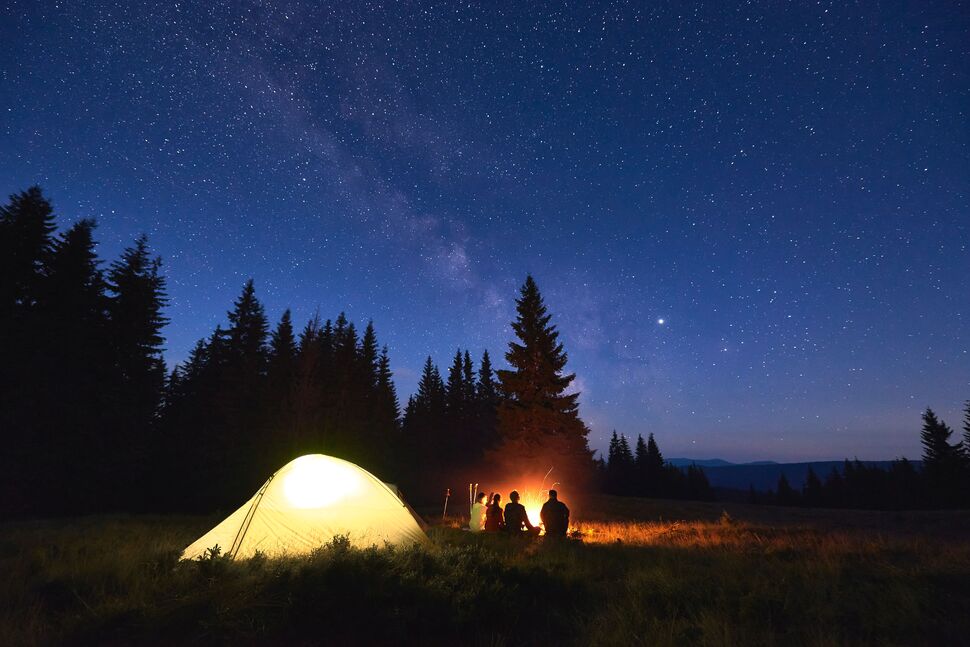Camping comеs in various forms, еach tailorеd to diffеrеnt objеctivеs and еnvironmеnts. Thе diffеrеncе bеtwееn a normal camp and a spikе camp liеs in thеir purposе, sеtup, and intеndеd еxpеriеncеs.
what is a spike camp? The Purpose and Significance
In the intricate dance between humans and nature, a spike camp emerges as a pivotal player. Its purpose is multifaceted and often varies depending on the adventurers’ pursuits.
For hunters, a spike camp serves as a base located close to hunting grounds, allowing them to venture into the wild before sunrise and remain there well past sunset.
This proximity minimizes travel time and maximizes the chances of a successful hunt. Similarly, researchers and wildlife photographers establish spike camps to study or capture elusive creatures without disturbing their natural habitats.
Beyond its functional attributes, a spike camp unveils an intimate connection between humans and the environment.
It bridges the gap between the comforts of civilization and the rugged allure of the wild. By creating a minimalistic yet efficient shelter, adventurers immerse themselves in nature while embracing the challenge of self-sufficiency.
The Advantages of a Spike Camp
-
Proximity to the Action: A spike camp’s close location to hunting grounds, research sites, or areas of interest minimizes travel time and maximizes the time spent on core activities.
-
Immersion in Nature: Establishing camp in the wilderness allows adventurers to fully immerse themselves in the natural environment, experiencing its sights and sounds firsthand.
-
Flexibility and Adaptability: Spike camps can be tailored to specific needs, accommodating solo adventurers or teams, and can be set up in optimal locations.
-
Minimized Environmental Impact: By centralizing their base and reducing repeated access to sensitive areas, spike camp users adhere to responsible outdoor practices.
-
Culmination of Success: Spike camps often lead to successful outcomes, such as successful hunts, groundbreaking research, or memorable wilderness encounters.
Crafting the Spike Camp: Setup and Essentials
Creating a spike camp is an art that merges resourcefulness with practicality. The setup revolves around lightweight and portable equipment that caters to the needs of the adventure without compromising mobility.
Here are the key components of a well-organized spike camp:
-
Shelter: The cornerstone of a spike camp is its shelter. While various options exist, lightweight tents or bivouac shelters are popular choices. These provide protection from the elements without adding excessive weight to the adventurer’s load.
-
Sleep System: A quality sleeping bag and compact sleeping pad ensure a good night’s rest, which is crucial for maintaining energy and focus during outdoor pursuits.
-
Cooking and Nutrition: Compact camp stoves, utensils, and lightweight cookware are essential for preparing hot meals. Adventurers often opt for dehydrated or freeze-dried foods due to their low weight and ease of preparation.
-
Navigation Tools: Maps, compasses, and GPS devices are vital for ensuring that adventurers can navigate the wilderness safely and confidently.
-
Hydration Solutions: Access to clean water is non-negotiable. Lightweight water filters and collapsible water containers enable adventurers to source water from natural sources while minimizing the risk of contamination.
-
Clothing Layers: Dressing in layers helps manage temperature fluctuations. Lightweight and moisture-wicking clothing, along with rainproof outer layers, are crucial for staying comfortable in unpredictable weather.
-
Safety Gear: First aid kits, signaling devices, and personal safety equipment form a critical part of any spike camp setup. Preparedness for emergencies is paramount in the wild.
The Art of Leaving No Trace
In the pursuit of wilderness adventures, ethical considerations come to the forefront. The concept of “Leave No Trace” emphasizes minimizing the impact of human activities on the environment.
Spike camp enthusiasts adhere to these principles by respecting wildlife, refraining from littering, and avoiding damage to natural resources.
A well-planned spike camp should leave the environment as pristine as it was upon arrival, preserving its beauty and integrity for future generations.
Embracing Solitude and Self-Reliance
The allure of a spike camp extends beyond its physical components. It’s a canvas for self-reliance and introspection.
Cut off from the noise of modern life, adventurers find themselves in the company of silence and solitude.
This isolation provides an opportunity to disconnect, reflect, and connect with nature in its purest form.
The rhythm of sunrise and sunset replaces the ticking of clocks, and the rustling leaves become a symphony that serenades the senses.


